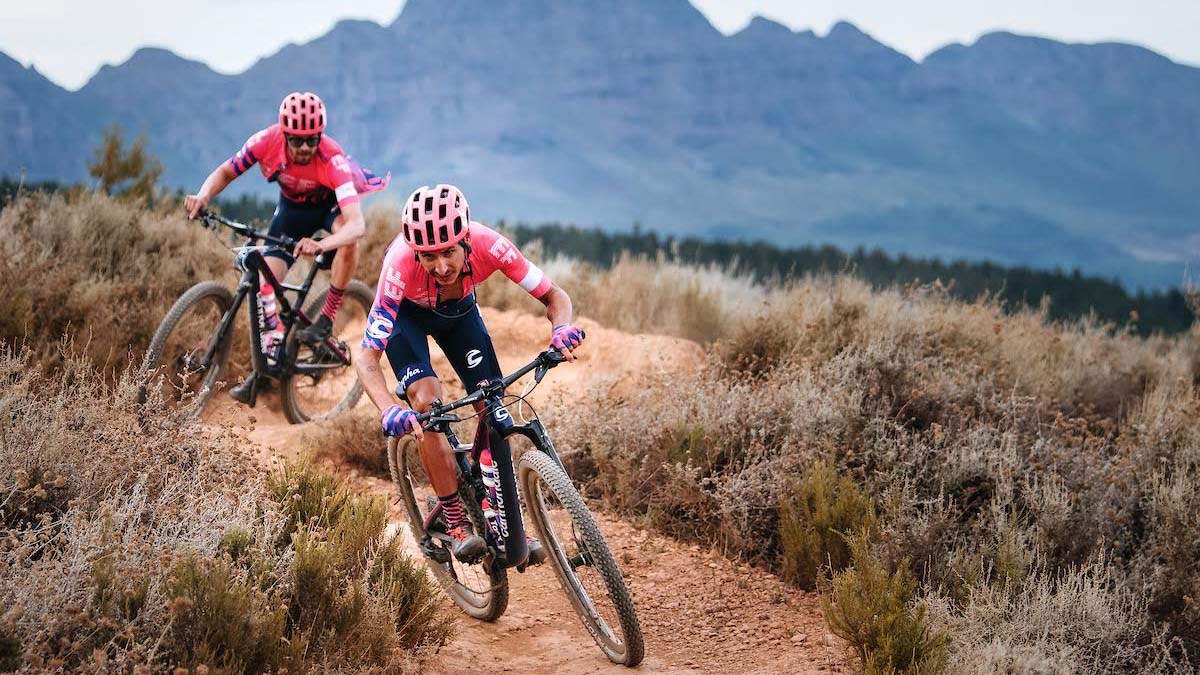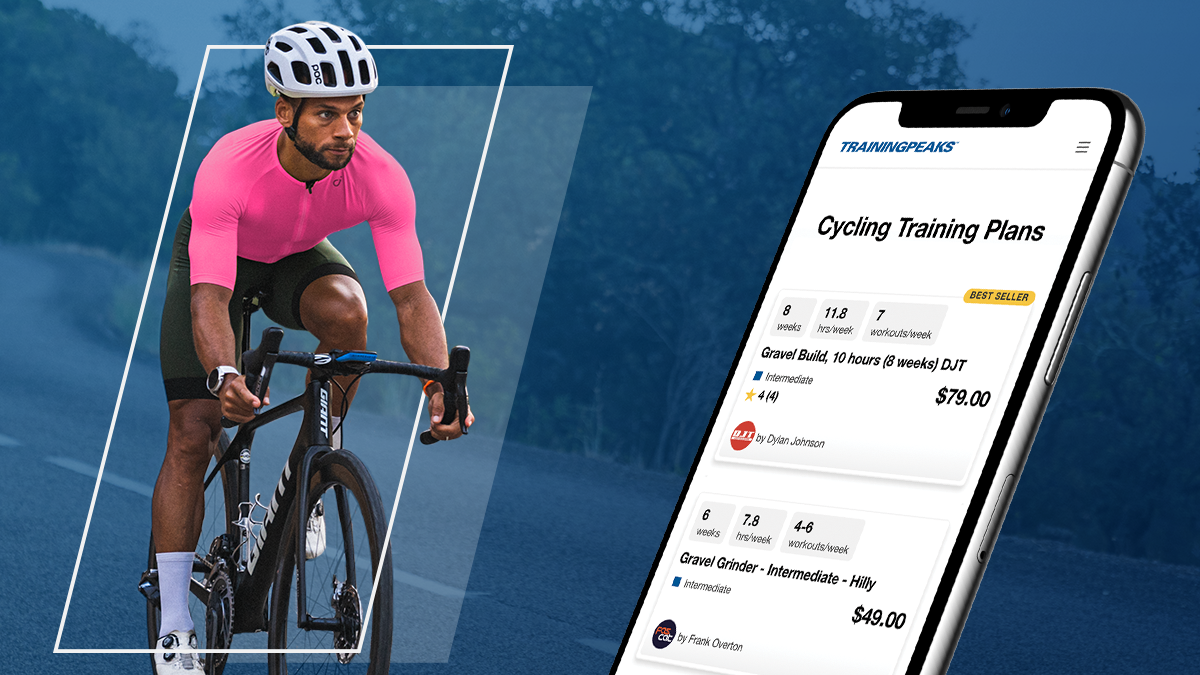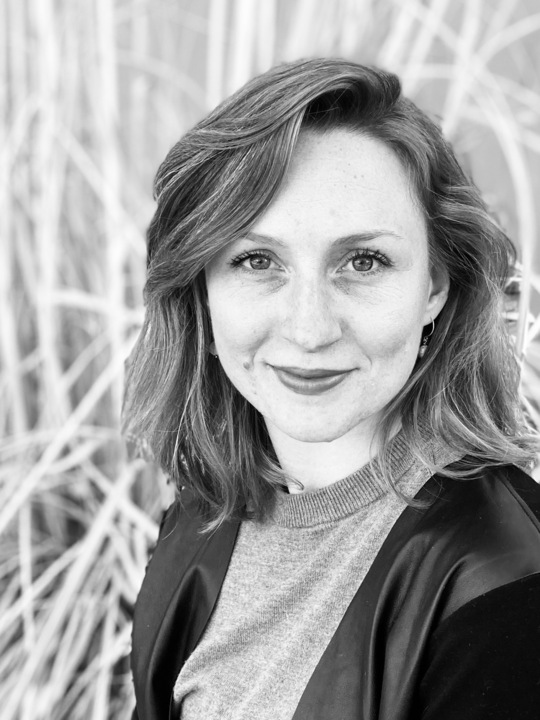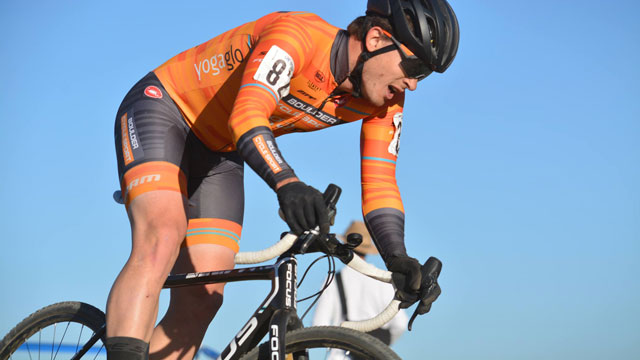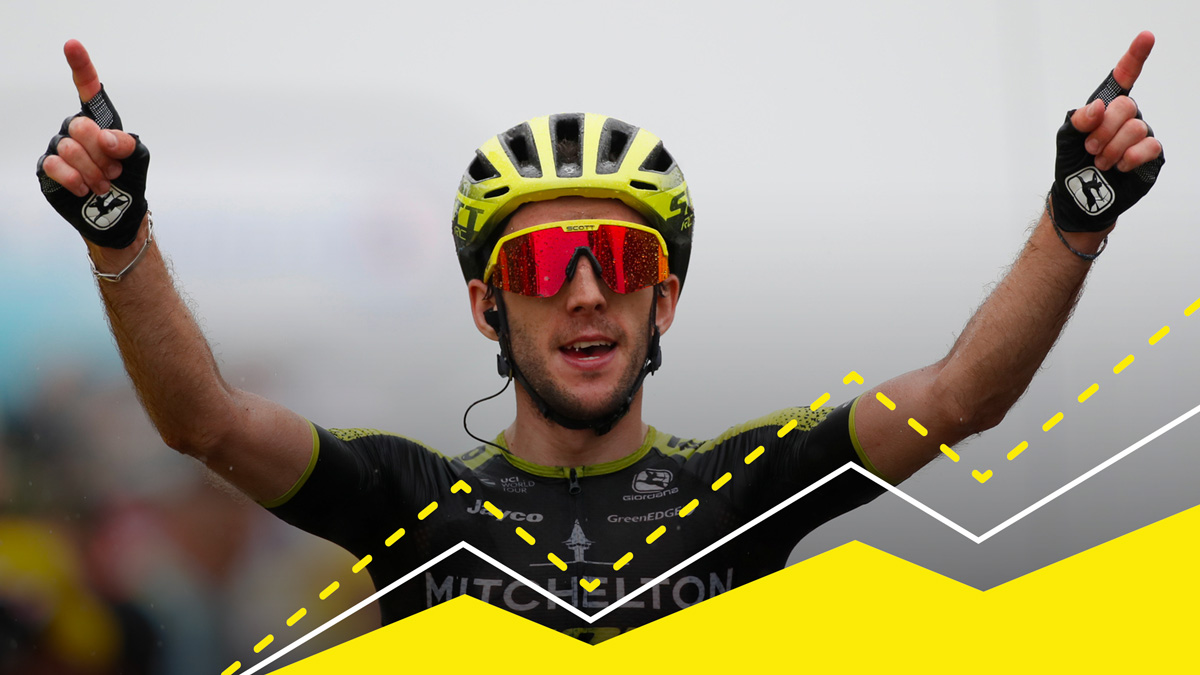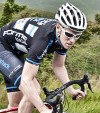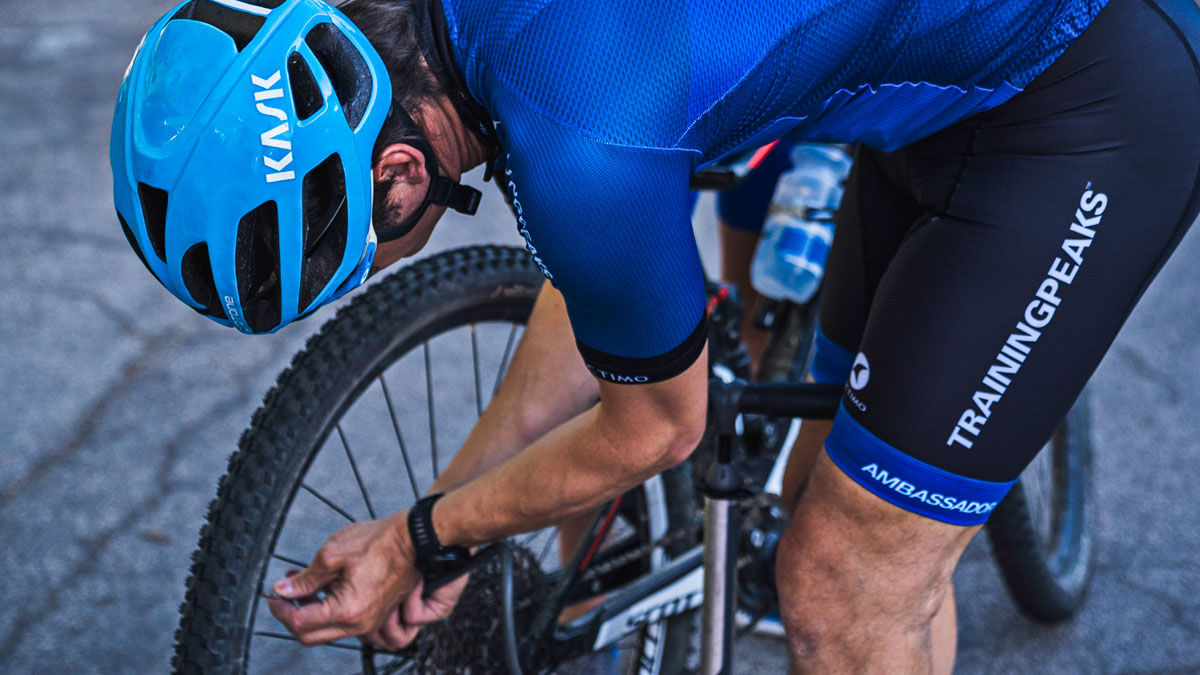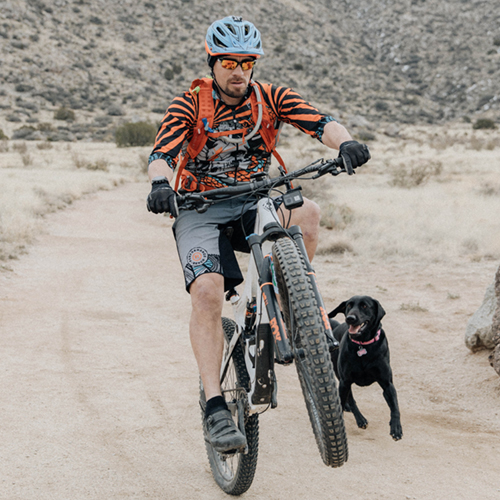Lachlan Morton and Alex Howes prepare for the 2020 Absa Cape Epic in South Africa. Photo by Ashley Gruber.
Set in South Africa’s stunningly rugged interior just east of Cape Town, the Absa Cape Epic is the world’s elite annual mountain bike race. Pros and amateurs alike face off in teams of two in an epic eight-day stage race that covers about 700 kilometers of riding and up to 17,250 meters of climbing in March. While it’s a full-service race in which all food and board are provided, the event’s length and technical terrain require ample preparation from its competitors.
To learn more about training for such a demanding event, I chatted with EF pro cyclist Alex Howes — who was set to compete in 2020 and 2021 but was derailed both times — as well as 6th place finisher Carla Williams, an amateur cyclist and emergency medical professional who trained for the Cape Epic 2017 during her residency program. Both shed light on their training regimes, and I was surprised at how little they actually differed.
Course Specificity
One of Cape Epic’s key selling points is that the route changes each year, giving all riders an equal footing at the start line. With the new route announced about four months before the race, I thought it seemed logical that the course specifics would play a large part in race prep — but neither of our riders confirmed my suspicions!
“In road racing, you can say, okay, I know this course suits me because there’s a 15-minute climb at this percent and it comes at this point in the race,” says Alex, a professional road cyclist for EF Education—EasyPost. “But mountain biking is a little less specific in that regard.”
Instead of the impossible task of training for each individual climb that Cape Epic would have in store, Alex focused on his weaknesses — namely, coordination (we’ll talk more about that next) — and relied on his strengths as a pro rider to make him competitive.
Terrain-specific training also didn’t play a large role in Carla’s training, but for different reasons. “I knew there would be a lot of climbing, but I was living in the flatlands of Chapel Hill, NC, where sustained climbs don’t exist,” she says. “I just focused on making sure my fitness was where it needed to be.”
Key Differences & Similarities
- Neither cyclist prioritized course specificity in their training
- Both relied on their aerobic base to pull them through challenging terrain
Coordination & Bike Handling Skills
Because of the course’s notoriously rugged terrain, both riders were particularly concerned about honing their coordination — an area in which they were both disadvantaged. Alex is based in Colorado and had to figure out a way to simulate the demands of mountain biking in the cold of winter when the state’s trails are particularly inaccessible. Carla, as mentioned earlier, also lacked access to the technical terrain she needed to practice on.
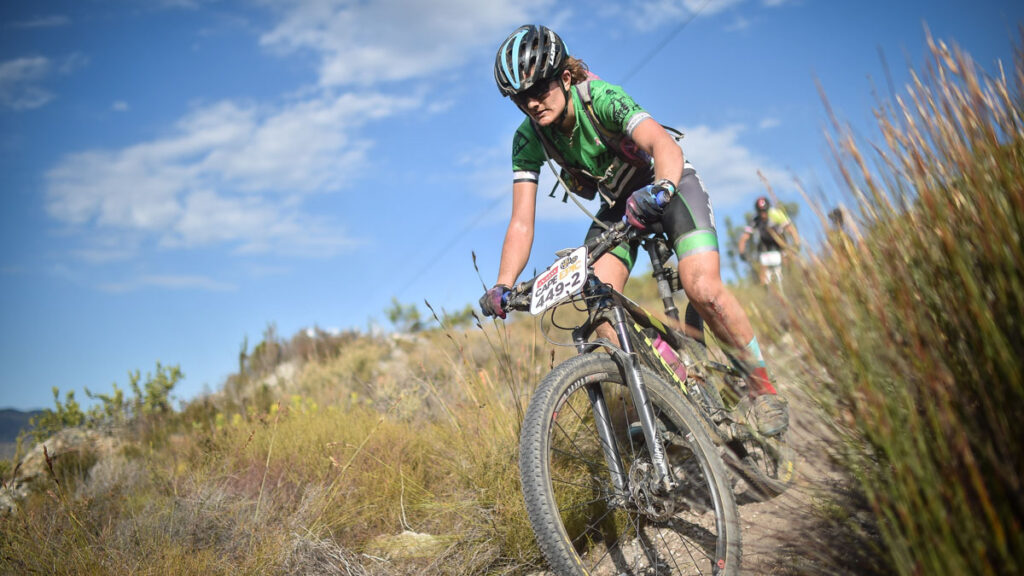
As a professional cyclist, Alex had the advantage of making a pit stop in Europe to practice on trails before his flight to South Africa. But up to that point, he’d been roughing it. Using a foam roller and skateboard top, Alex constructed a homemade balance board that became an integral part of his coordination training. “With a lot of core exercises, you get a really strong core, but you don’t necessarily get the top half talking to the lower half the way that you want to,” says Alex. “And that was my goal.”
To make sure she had exposure to varied terrain, Carla and her husband made several nearby trips to the more mountainous Asheville and Pisgah areas. But on a daily basis, she got out of the local terrain what she could. “Chapel Hill/The Triangle does have some mountain bike trails around that were sufficient to practice cornering, balancing, and short punchy climbs,” she says. “I also had been traveling to races for three years, so I had some experience riding more technical trails and longer descents from racing in mountainous areas… It’s definitely not easy to practice those skills when you don’t live in an area with mountains.”
Key Differences & Similarities
- Neither Alex nor Carla had local access to adequate mountain biking trails during their Cape Epic Training
- Alex relied on a homemade balance board to improve his coordination and balance. He also traveled to Europe on his way to South Africa to practice on trails.
- Carla utilized her bike handling skills she had been practicing for several years in mountain bike races. She also optimized training on local terrain, getting out of her nearby trails what she could.
The Journey to the Start Line
As it is with any major race preparation, life got in the way for both Alex and Carla. When I first reached out to Carla, she was upfront about her training constrictions. “I will let you know that I was training while doing my residency in emergency medicine and so my ‘training’ was likely far from ideal,” she said. “But I did feel prepared for the race, and I think we finished 6th in the coed division, so it got me through!”
She went on to say that her “life during that time was either working at the hospital or riding my bike. I literally didn’t do much else.” What an incredible feat to have finished 6th while completing a demanding medical residency!
But Alex’s journey to Cape Epic didn’t pan out as neatly as Carla’s. As luck would have it, Alex and his race partner, Lachlan Morton, made it all the way to South Africa in March of 2020 — yes, that fateful month — before the race was canceled due to the outbreak of the COVID pandemic. “It was a heck of a long trip to only be down there for a few days, but I don’t regret it,” says Alex.
In fact, the allure of the race and the country’s beauty proved irresistible for Alex. He resolved to train for the 2021 edition, but crashed and broke his hand just before the rescheduled event. “Cursed,” he says.
After two derailed attempts, Alex is still thinking about giving Cape Epic another go. “There’s a lot of puzzle pieces to put together,” he says, “but it’s definitely a puzzle I’m interested in putting together at some point.”
